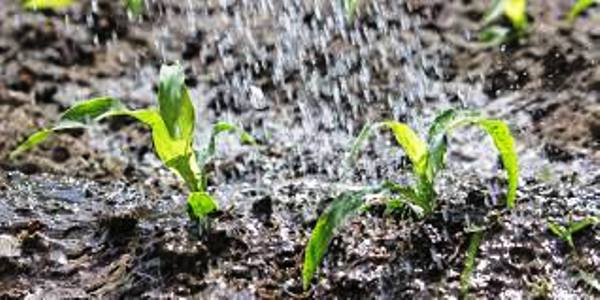Soil moisture is the water content of the soil, it can be expressed in terms of volume or weight. Soil moisture measurement can be based on in situ probes for example capacitance, probes, neutron probes or remote sensing methods. Water that enters a field is removed from a field by runoff, drainage, evaporation or transpiration. Whereas carbon is a chemical element that has a symbol C and atomic number of 6, it is non-metallic and tetravalent, meaning that its atoms are able to form up to 4 covalent bonds due to its valence shell exhibiting 4 electrons, it belongs to group 14 on the periodic table and makes up about 0.025 percent of earth crust.
Drylands systems are ecosystems characterized by a lack of water. They include cultivated lands, scrublands, shrublands, grasslands, savannas, semi-deserts and true deserts as characterized by Nigerian States. The lack of water constrains the production of crops, forage, wood and other ecosystem services. Four dryland subtypes are widely recognized which include dry sub-humid, semiarid, arid, and hyperarid showing an increasing level of aridity or moisture deficit. Drylands occupy approximately 40 percent of the earths land surface and have low inputs of mean annual precipitation (P) relative to mean annual potential evapotranspirational (ET) losses
According to Steven A. Kannenberg, William R. L. Anderegg et al, in research published on nature geoscience, Drylands exert a strong influence over global interannual variability in carbon and water cycling due to their substantial heterogeneity over space and time. This variability in ecosystem fluxes presents challenges for understanding their primary drivers. Here we quantify the sensitivity of dryland gross primary productivity and evapotranspiration to various hydrometeorological drivers by synthesizing eddy covariance data, remote sensing products and land surface model output across the western United States. We find that gross primary productivity and evapotranspiration derived from eddy covariance are most sensitive to soil moisture fluctuations, with lesser sensitivity to vapor pressure deficit and little to no sensitivity to air temperature or light. We find that remote sensing data accurately capture the sensitivity of eddy covariance fluxes to soil moisture but largely over-predict sensitivity to atmospheric drivers. In contrast, land surface models underestimate sensitivity of gross primary productivity to soil moisture fluctuations by approximately 45%. Amid debates about the role of increasing vapor pressure deficit in a changing climate, we conclude that soil moisture is the primary driver of US dryland carbon water fluxes. It is thus imperative to both improve model representation of soil water limitation and more realistically represent how atmospheric drivers affect dryland vegetation in remotely sensed flux products.
How soil moisture affects carbon
Soil moisture influences soil carbon dynamics including microbial growth and respiration. Researchers generally assume that soil response to moisture changes is linear and reversible. As climate change intensifies the global water cycle, researchers predict that soil moisture fluctuations will become more frequent and intense, understanding how these fluctuations will impact soil carbon processes can improve the predictive capacity of soil carbon models and soil nutrient.
Effect of soil carbon emission to Nigeria ecosystem
Soil carbon emission in Nigeria can lead to several detrimental effects on the ecosystem. Increased carbon emissions contribute to climate change, resulting in unpredictable weather patterns, extreme temperatures and altered precipitation, all of which can negatively impact agriculture and biodiversity. Additionally, changes in soil carbon levels can affect soil fertility, potentially leading to decreased crop yields and soil degradation. These environmental challenges pose threats to food security and the overall health of the ecosystem in Nigeria,
Improving soil moisture to boost nutrients of dryland in Nigeria
A large proportion of Nigerian drylands is characterized by sandy undulating topography. The sandy soil is usually low in organic matter, nitrogen and phosphorus and degrades rapidly under conditions of intensive rainfall. Therefore, to improve soil moisture and boost nutrients levels in drylands in Nigeria, consider implementing water conservation techniques like mulching, drip irrigation and rainwater harvesting. Additionally, organic matter incorporation through cover cropping and composting can enhance soil fertility. Crop rotation and agroforestry practices may also contribute to better nutrient retention. Regular soil testing will guide specific nutrient amendments for optimal crop growth in these conditions.


